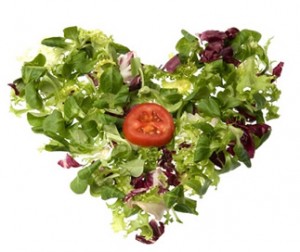
By Dr. David Kulla
 With the advent of nutritional science in recent years, the importance of a healthy diet has become increasingly relevant in society’s collective consciousness. From our immune system to our skin, to the appearance of our hair, what we eat influences every aspect of our lives. Food plays a large, but often underscored role in the word of bodybuilding. So you may be asking yourself, how much should I eat and what?
With the advent of nutritional science in recent years, the importance of a healthy diet has become increasingly relevant in society’s collective consciousness. From our immune system to our skin, to the appearance of our hair, what we eat influences every aspect of our lives. Food plays a large, but often underscored role in the word of bodybuilding. So you may be asking yourself, how much should I eat and what?
When it comes to healthy muscle-building nutrition, we must part ways with the age-old axiom “bigger is better.” Consuming huge amounts of food to put on muscle mass is an ineffective strategy. The key is not simply a question of how much food we can pack on to our plates and into our stomachs, but the quality of nutrients we consume and how often. Lifting weights puts great stress on your body and eating heavy foods loaded with excessive amounts of protein and unhealthy fats does your body a disservice as these are more difficult to digest and divert energy—that would have otherwise gone to building muscle mass, to the processes happening in your stomach.
A common misconception is that eating everything in sight coupled with a disciplined workout routine will pack on lean muscle mass. This is fallacy; the body requires rich and powerful nutrients to work at maximum capacity and bodybuilding demands maximum performance. Eating three large meals a day sounds great, but to make significant muscle gains you must eat moderate portions of the right food types with increased frequency.
So what’s the ideal meal size to maximize muscle?
 Exactly how much you should eat is often determined by body composition, sex, weight and individual goals. Generally speaking, to pack on muscle you should plan to eat five to six meals per day, with each meal containing at least 30 grams of protein and plenty of fruits and vegetables. Breaking up your meals throughout the day will heighten their nutritional value and boost your metabolism, resulting in more energy, improved workouts and ultimately better, leaner muscle.
Exactly how much you should eat is often determined by body composition, sex, weight and individual goals. Generally speaking, to pack on muscle you should plan to eat five to six meals per day, with each meal containing at least 30 grams of protein and plenty of fruits and vegetables. Breaking up your meals throughout the day will heighten their nutritional value and boost your metabolism, resulting in more energy, improved workouts and ultimately better, leaner muscle.
The size of your meals will vary depending on your individual goals. For example, if your exercise regimen requires a caloric intake of at least 3,000 calories, your meals should be between five and six-hundred calories each. Salmon, olive oil, almonds, eggs, and lean beef should be staples in your diet as these are rich in protein and contain a great deal of nutrients that will turn your body into a muscle building machine! Additionally, it is important to include healthy carbohydrates like oatmeal, brown rice, bran cereal, whole grains, and leafy vegetables. Carbohydrates sustain your energy levels while you lift, so schedule their appearances accordingly. Finally, keep in mind that water is nutrition as well, and paramount for healthy muscle. In addition to drinking copious amounts of water, try a cup of green tea or a cup of coffee now and then as these can also encourage muscle growth.
Combined with a strict lifting regimen, eating five to six moderate meals made up of healthy, protein rich foods each day will have your muscles bulging in no time!
– This post was written for Your Health Journal by Dr. David Kulla. Dr. Kulla is a licensed New York Chiropractor and a nutritionist as well as owner of http://synergywellnessny.com/ in Manhattan.
